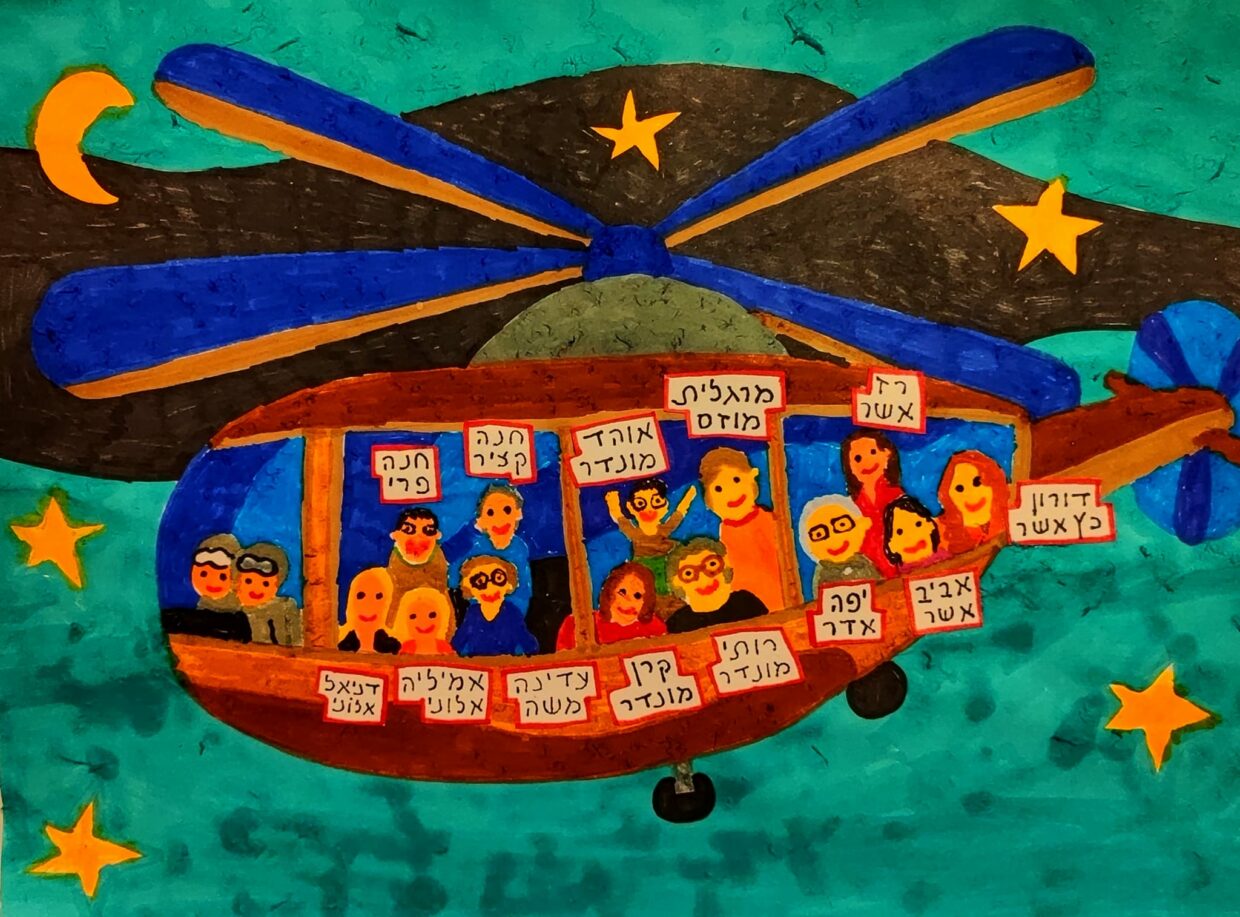
The wonderful videos are up and tears are rolling down my cheeks: children hugging their parents, families hugging grandparents. Hostages are being returned. I wished for nothing more than to live to see these videos and my heart flows with gratitude. I have been watching Ohad Munder’s first hug with his dad again and again, sobbing with joy. But I feel so much inquietude around all this, mostly paralyzing fear for the fate of the remaining hostages. And I fear that some of this dark teatime of the soul has to do with confronting the transactional value of human life.
Recently, I got to read a classic anthropological text from 1923 by Marcel Mauss called The Gift. Mauss marshals evidence from various societies in which gift-giving is common to show that gifts are not spontaneous or selfless; rather, they are surrounded by elaborate social norms that dictate how to give, how to receive, and how to reciprocate. Gifts are an important and thoroughly ritualized social adhesive. At no time is the issue of reciprocity and value-setting clearer than when witnessing a hostage exchange, which makes a transaction out of the gift of human life between parties whose animosity is at its peak. As I read coverage about the Israeli hostages and the released Palestinian prisoners I think, who is being valued more? Whose children are coded as “children” and who are coded as “prisoners,” “Palestinian terrorists,” or “Zionist occupiers”?
The transactional nature of the releases brings into stark relief the range of values that the many stakeholders and parties to this conflict affix to different human lives. A few years ago, I read Peter Singer’s The Most Good You Can Do, where he makes an impassioned argument against parochialism. By contrast to Rashi’s adage that “the poor people of your own town come first,” Singer argues that all lives have the same value and that altruistic giving should therefore eschew parochial considerations and, instead, maximize the good for as many people as possible. I understand, cognitively, what Singer is trying to say, and of course I cognitively comprehend that every life is precious. But I think that, in his admonitions, Singer is being less than responsive to the basic workings of human psychology, which I am observing in my own soul as well as in the souls around me.
A Gazan family will be welcoming a released teenager soon with their own joy, adjacent to the Israeli joy but not touching it. The folks online reminding and admonishing and lecturing about how you can feel for both sides are able to host a modicum of generalized warmth because they are not psychologically invested and wound up in one side of this conflict or in another. This is not about who has a heart and who is heartless, but about where people are positioned. And I’m beginning to think that Rashi did not issue an edict so much as offered a description of where people’s natural sympathies flow.
(As an aside, it is such a psychologically bizarre experience to scroll through Facebook posts, finding Israeli and, to a lesser degree, Jewish posters concerned with the fate of the hostages and posting incessantly about them and about the war, while other people post silly memes and their Thanksgiving tables. The folks who post thus are not bad or evil or lacking in empathy. It’s just… not their thing. How many horrific human disasters in faraway lands have I heard about and, while feeling keen sorrow for those involved, moved on with my life, largely unaffected?)
Along these lines: twenty-four people were released yesterday, 11 of which were Thai and Nepalese workers. What a heartache, to be thrusted into the heart of hell in a conflict unrelated to you, because you had to move away to a far away land to make a living; to find yourself caged and tortured, caught between parties in a war zone. Initially, their names and pictures were unavailable, anonymous in captivity and in liberty as they were when trying to make a living in a cruel global economy. This morning I finally saw their picture. I was so moved to see Jimmy Pacheco’s release and how he was embraced by kibbutz members. The man for whom Jimmy worked as a caregiver, Amitai Ben-Zvi, was murdered by Hamas, and Jimmy was kidnapped and manhandled with horrific violence. The world devalues the lives of foreign workers so systematically and deeply. The hug between Jimmy and members of the Ben-Zvi family was a balm to my heart.
And then there are the lists. A huge, painful, never-healing wound in Jewish history involves the Judenrat’s listmaking in ghettos, making horrifying decisions on who must be saved and who must be shipped to the east to be murdered in concentration camps. It is really hard to reckon with the fact that people’s demographics play a horrifying role in setting their price in hostage exchanges. I wake up nightly from horrible nightmares involving the toddlers in captivity, especially baby Kfir Bibas, and shudder when I consider that the monsters who hold them captive understand the psychological value we affix to children. As my beloved late colleague Sherry Colb and her husband, Michael Dorf, wrote in Beating Hearts, there is a special premium on the lives of children.
And at the same time, there is a frailty to aging people (which I addressed in several of my works). And I’m so moved by the return of the brave, stoic grandmothers, many of whom lost husbands to sadistic murderers. But this also means that the precious lives of young men are going to be devalued by comparison, and that they will have to withstand captivity longer, and I worry that the calculus of the worth of human lives versus military objectives will change as the war rages on.
Speaking of Colb and Dorf’s book, I also think a lot about the lives of animals brought into this homo sapiens conflict. One brief clip from the horror footage of October 7 keeps sawing through my mind: the murderers and kidnappers drive a truck away with hostages on it, weeping. The family dog chases the truck, barking, running, trying to save his family members. And these evil monsters shoot the dog dead. Why? WHY?! Why the dog? What does the dog have to do with any of this? Is the dog a Zionist occupier? I think about all the families who had to make the tough decisions to leave their dogs and cats outside their safe rooms and shelters. Family members whom they loved and cherished, like we love and cherish Inti and Gulu. What a thing to confront and to reckon with. They were trying to save their children’s lives, their parents’ lives. What choices people have had to make. And what complicated feelings to process amidst the layers of horror and grief.
I’m sure I’m not the only person who is confronting complicated and uneasy feelings about all this. What makes me feel a bit better, a bit more inspired, is an amazing statement made by Yoni Asher, whose wife and two daughters were returned from captivity yesterday. Asher says: “It is okay to rejoice and it is okay to shed a tear, but I am not celebrating and will not celebrate until the last of the hostages returns.”
May we live to welcome them all home.




No comment yet, add your voice below!